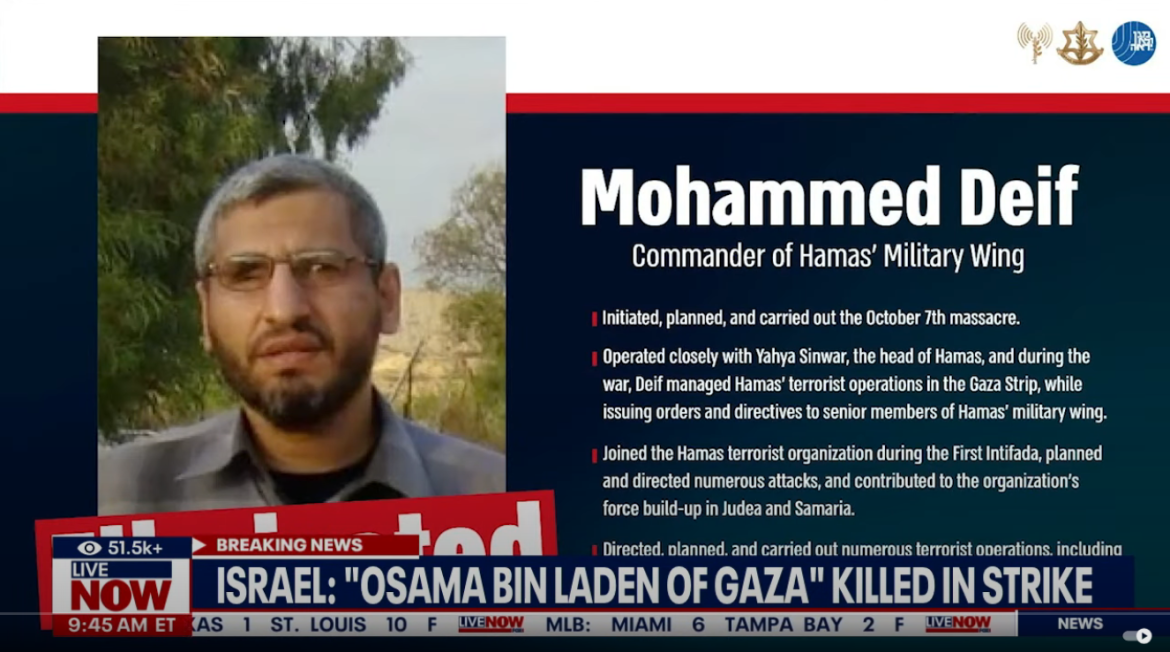The Israel Defense Forces (IDF) have confirmed the killing of Mohammad Deif, a top Hamas commander often referred to as the “Osama bin Laden of Gaza.” Deif’s death was confirmed following an airstrike in Khan Younis, marking a significant milestone in Israel’s ongoing efforts to dismantle Hamas’ military and governing authority in Gaza.
Israeli Defense Minister Yoav Gallant announced the successful operation on his X (Twitter) page, stating, “This is a significant milestone in the process of dismantling Hamas as a military and governing authority in Gaza, and in the achievement of the goals of this war.” Gallant praised the precision and professionalism of the IDF and ISA, asserting that the operation signifies the disintegration of Hamas and the ultimatum that Hamas terrorists may either surrender or face elimination.
Mohammad Deif was considered the second-in-command within Hamas and was responsible for orchestrating the October 7 terrorist attack on Israel, which resulted in the deaths of 1,200 people and left 251 as hostages. Nearly 300 days later, over 100 hostages remain in captivity, highlighting the enduring impact of Deif’s actions.
The IDF’s confirmation of Deif’s death comes amid a series of targeted strikes against high-profile figures in Iran-backed militant groups. Deif is the third such leader to be killed in recent weeks, following the deaths of Hamas political leader Ismail Haniyeh and a senior Hezbollah commander. Last month, Israel conducted a strike that killed Deif, who was head of Hamas’ military wing and an architect of the October 7 attacks.
Hamas’ political chief Ismail Haniyeh was assassinated in Tehran using an explosive device that had been covertly planted in the guest house where he was staying. This assassination, carried out with precise intelligence, has intensified tensions and cast a shadow over ongoing ceasefire negotiations in Gaza.
The killing of Haniyeh in Iran has significantly strained relations and threatened to derail efforts for a ceasefire in Gaza. In response to the assassination, Iran has vowed revenge, further escalating the already high tensions in the region.
The assassination of these key Hamas leaders has drawn a complex international response. U.S. Secretary of State Antony Blinken stated that Washington had no involvement in the assassination of Haniyeh, underscoring the delicate balance of power and influence in the region.
As Israel continues its operations against Hamas, the international community watches closely. The success of these targeted strikes, while a tactical victory for Israel, raises questions about the future stability of Gaza and the broader Middle East. The potential for retaliation from Iran and other militant groups remains high, and the path to a sustainable ceasefire appears increasingly fraught with challenges.



